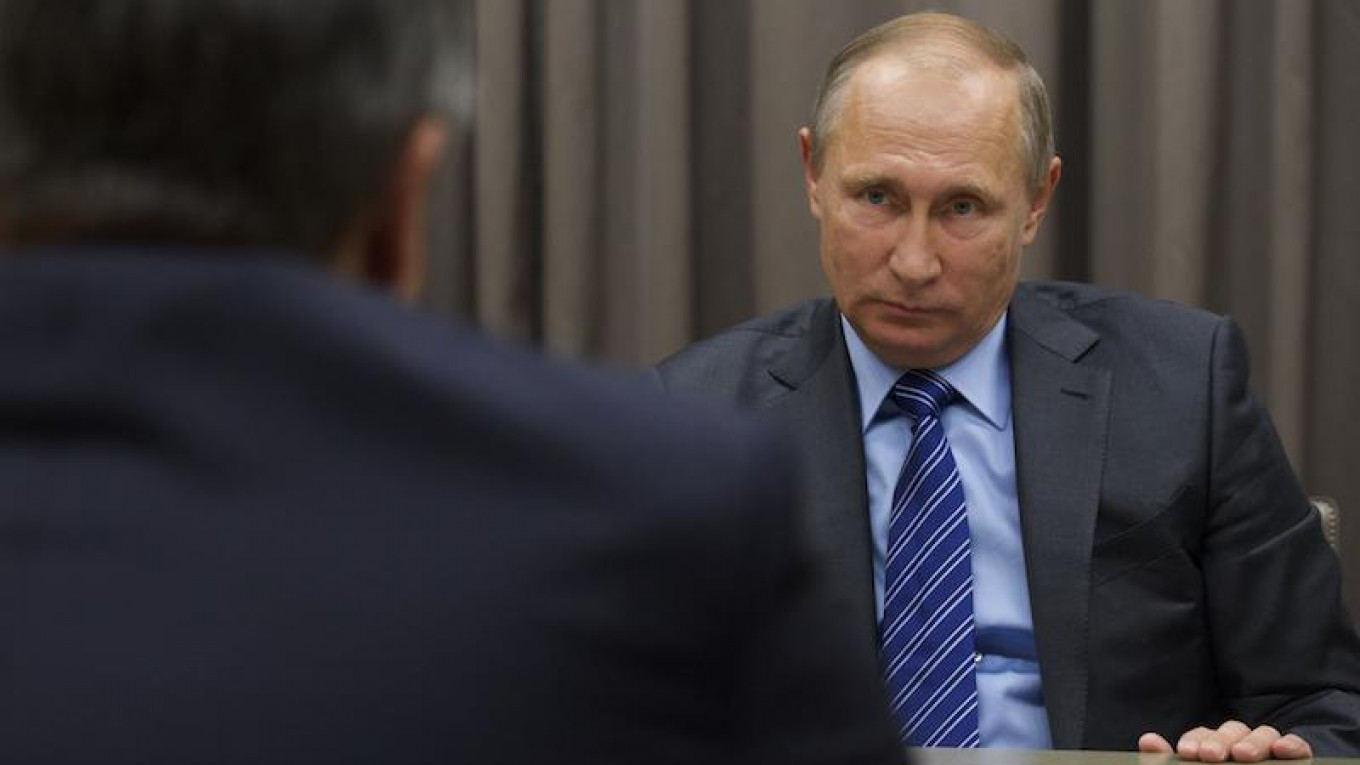Russia’s relations with the West, and with the United States in particular, have lapsed into a new Cold War. The window of opportunity that opened in the early 1990s, back when it seemed that Russia had every chance of genuine integration into the community of democratic countries, has now unfortunately closed — most likely for a long time.
It is true that both sides have made mistakes and missteps, but since 2014 Russia has been responsible for the majority of the escalation in international tension, sad as this is for me, as a Russian citizen, to recognize.
The West justifiably perceives President Vladimir Putin’s actions and rhetoric as threatening. Those in Russia who oppose the Putin regime also view the Kremlin’s actions as fueling the risk of war. Putin, meanwhile, constantly tells his citizens that Washington is the true aggressor, and that he is just responding.
The U.S. presidential candidates have different plans for mitigating the threat from Russia if elected: Hillary Clinton apparently intends to continue the current administration’s policy of containment, with only a few modifications. Donald Trump has essentially promised as part of his isolationist rhetoric to let Russia have complete and undivided control over the post-Soviet space — or so his statements about being ready to recognize Crimea as Russian and to lift sanctions seem to imply.
Will the actions of the next U.S. administration, and the Western world as a whole, be effective? Will they successfully deescalate the standoff? That depends on how well the West understands the motives of its adversary. Western politicians and experts clearly underestimate the non-practical components of Putin’s foreign policy.
In addition, the Russian government needs tension on the foreign policy front in order to sustain stability at home: it can blame an external enemy for all of the problems plaguing Russia, and tell its citizens that they must rally around the regime if they want to defy the enemy’s aggressive plots. Rational foreign policy objectives are clearly not always a priority for the Russian side.
Abstract concepts such as love, respect, and recognition of Russia’s contributions to humanity are more important to Putin in relations with other countries than military security or economic profit. Like the kings of the early Middle Ages, Russia’s leaders are willing to go to war over a personal slight or disrespect by a partner.
Putin has complained that the West “didn’t want to talk to Russia” over Ukraine. In his opinion, Western diplomats and politicians disrespected Russia, acting as if Russia did not exist; they didn’t just refuse to accept Russia’s arguments, they refused to even enter dialogue. Putin views this as justification for Russia’s actions in Crimea and the Donbass.
Ukraine and the EU doubtlessly have the right to build a relationship without Russia’s involvement. At the same time, one cannot rule out the possibility that if Putin had been involved in discussing the situation in Ukraine in the fall of 2014, the crisis might not have gotten so extreme and destructive.
When the Turkish Air Force shot down a Russian fighter jet on Nov. 24, 2015, this was a major blow to Russian-Turkish relations, bringing the countries to the brink of war. What Russia demanded as the key condition for resolving the crisis was not an obviously practical concession.
They did not ask Turkey to agree that Russian airplanes could occasionally enter its airspace for several seconds, given that the prevailing winds in the region where Russian airplanes are based make it very difficult to fly otherwise.
Instead, Russia demanded that Turkish President Recep Erdogan apologize.
In pursuit of this moral victory, Russia began to exert unprecedented pressure on Turkey. That impacted not just the Turkish economy but also quality of life for Russian citizens, who lost a cheap vacation destination and were forced to pay more for fruit and vegetables, previously imported in large quantities from Turkey.
The Russian government was willing to pay this price because it had decided — yet again — that national prestige (as current Russian officials interpret it) is more important than security and prosperity.
The National Security Strategy of the Russian Federation, passed on Dec. 31, 2015, names “consolidating the status of the Russian Federation as a leading world power” as one of the key priorities in Russia’s national interests.
This means that Russia’s Foreign Ministry and law enforcement agencies are now obligated to worry not only about security, but also about whether Russia is sufficiently respected around the world, and whether it is recognized as having the status it thinks it deserves.
Leonid Gozman, the author of this article, is a Russian political analyst, psychologist, and politician.
A Message from The Moscow Times:
Dear readers,
We are facing unprecedented challenges. Russia's Prosecutor General's Office has designated The Moscow Times as an "undesirable" organization, criminalizing our work and putting our staff at risk of prosecution. This follows our earlier unjust labeling as a "foreign agent."
These actions are direct attempts to silence independent journalism in Russia. The authorities claim our work "discredits the decisions of the Russian leadership." We see things differently: we strive to provide accurate, unbiased reporting on Russia.
We, the journalists of The Moscow Times, refuse to be silenced. But to continue our work, we need your help.
Your support, no matter how small, makes a world of difference. If you can, please support us monthly starting from just $2. It's quick to set up, and every contribution makes a significant impact.
By supporting The Moscow Times, you're defending open, independent journalism in the face of repression. Thank you for standing with us.
Remind me later.








